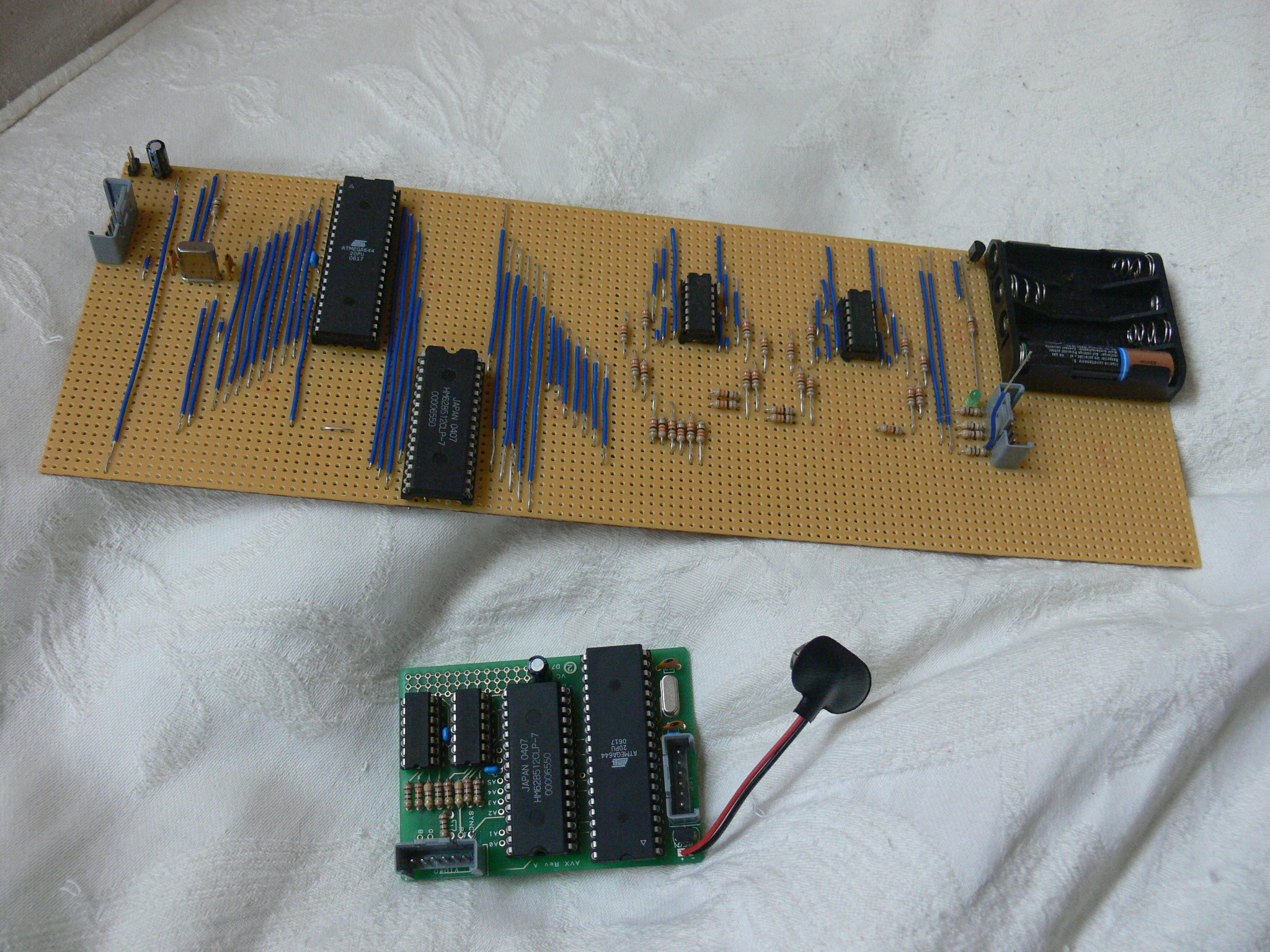筆者發文說他曾經做過的電路板 25元 美金
These boards use an Atmel ATmega644 microcontroller clocked at 22.1MHz,
and a 512K SRAM for data and framebuffer storage.
32點io 點輸出
19 of the Atmel’s 32 GPIO lines are used to drive the SRAM address bus.
有一個螢幕輸出
To generate a 320×240 component video signal,
有序列輸出的模擬類比輸出
the Atmel rapidly increments the address, and the data lines are fed via 74HC-series buffers to a trio of simple summing-point DACs; during horizontal and vertical blanking,
他是免費分享的
it is free to perform other operations. Here’s a video of the device in action.
只是簡單的影片
Not quite Quake 3, I’m sure you’ll agree, but maybe familiar to fans of
也須你可以看看這個
David’s 1987 classic Zarch.
In the end, I felt that much higher performance,
有電路文件與pcb分享
and the ability to run a general-purpose operating system, outweighed the benefits of home assembly, but it’s still a neat design. Those of you interested in the gory details can download Easy-PC schematics and a PCB layout here.
Zarch.Easy-PC here.
http://blog.atmel.com/2015/10/29/rewind-how-the-raspberry-pi-looked-back-in-2006/

沒有留言:
張貼留言